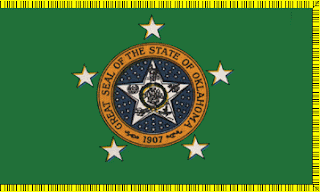OKLAHOMA CITY – Oklahoma taxpayers are set to save $40 million during the current state budget year and each year thereafter, according to a recent report.
The Information Services Division of the state’s Office of Management and Enterprise Services released its fiscal year-end report detailing the savings from the recently enacted plan to consolidate state government information technology processes. The report shows savings estimates continuing to climb and demonstrates that approximately $40 million in annual savings has already been achieved even though many state agencies still have not been incorporated into the consolidation process.
The savings can be attributed in part to lower software costs due to the combining of the state agencies’ purchasing power and a 17 percent reduction in the number of IT positions needed to maintain the consolidated IT infrastructure. The plan also details additional levels of cost avoidance in addition to the $40 million in savings, including $1.8 million of potential cost avoidance after the centralized IT operation rectified software licensing-related liabilities previously incurred by state agencies.
When the Oklahoma Legislature passed the proposal, it required IT officials to realize a savings of at least 15 percent of the state’s IT spend. The report demonstrates that the consolidation has met this goal.
Last fall, Oklahoma Chief Information Officer Alex Pettit told the House Government Modernization Committee that the consolidation had allowed $30 million in annual savings. On the morning of Sept. 11, Pettit, will again testify before the committee and will inform members of the newest savings numbers. Pettit is expected to field questions on his department’s mitigation of legacy IT information security liabilities and the potential for additional savings as the consolidation continues.
“CIO Pettit is doing a fantastic job implementing this plan,” explained the consolidation’s legislative author, state Rep. David Derby, R-Owasso. “During the next legislative year, we are committed to continuing the passage of legislation that will enable these savings to continue.”
 |
| Rep. Jason Murphey R-Guthrie |
Pettit’s testimony is expected to take place at approximately 11 a.m. Sept. 11 in Committee Room 432A at the state Capitol building. The meeting is open and the public is encouraged to attend.






